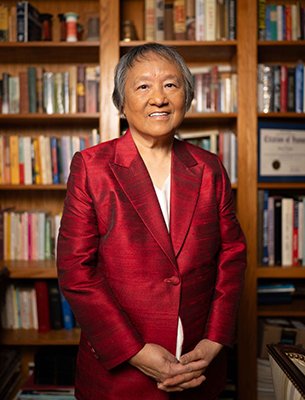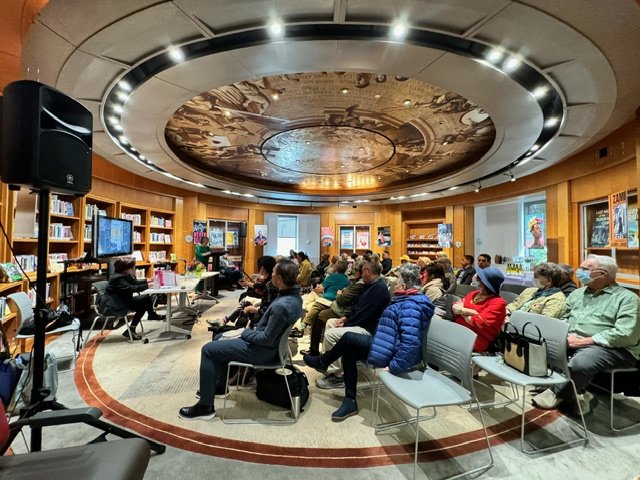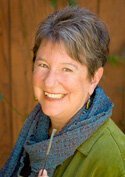A Witness Turns to Poetry
Book Review: Paranaque to New York City: Fifty Poems, by Therese B. Rodriguez; Published by Buensalido Agency, Makati 2023

Therese Rodriguez, author of a new poetry collection Paranaque to New York City, has added a sparkling new voice to this tradition. Her memoir in poetry offers a unique perspective on her life as a Filipina immigrant, lesbian, political activist, and public health pioneer.

Therese Rodriguez
Rodriguez was raised in a large devout family, and she dedicates her book to three “brilliant, kind, and gentle” women–her grandmother, her godmother, and her mother. Before coming to the United States in 1972, Rodriguez attended a series of Catholic schools. She writes with warmth and compassion about the deep friendships she made there, some lasting more than half a century, and mourns with her former classmates those who have died. But the church itself, does not escape her historical scrutiny and razor-sharp political perspective. In “Meandering (In Memory of Susan de Jesus Ongoco),” she recalls her sister members of the “Daughters of Isabella, a spiritual, social, and charitable organization.” But she goes on to excoriate the eponymous Queen Isabella who, “In the name of renewing the Catholic Church/ Spanish Inquisition/ Fought the North African Moors/ Expelled the ‘heretical’ Jews and Muslims/ Ethnic cleansing.”

Book launch at the San Francisco Public Library

Therese Rodriguez at the San Francisco Public Library
Rodriguez saves her most scathing criticism for the brutal regimes of Presidents Ferdinand Marcos and Rodrigo Duterte. In “Lourdes Guanlao” she charges that during Martial Law “Senators, students trade unionists/Priests, nuns, men and women of the media rounded up/imprisoned in Bicutan/…Many thousands ‘salvaged’/Scattered over 7100 islands of the Archipelago/Virtual Tomb of the Unknowns.” Under Duterte,” she writes in “Politics Not Allowed,” so many were “Slaughtered while addicted to drugs/Every day, 100 malnourished and hungry innocents/Offered to a hungry god.”
Rodriguez is perhaps most celebrated for her leadership of APICHA, the Asian and Pacific Island Coalition on HIV/AIDS, the organization she has headed since 1997. She often ends her presentations at APICHA events with a poem. “I wanted my speeches to be punctuated with a synthesis of how I feel about the issues that I’m arguing for,” Rodriguez says, explaining that she often wrote lines, observations, and snatches of poems on subway rides from her home in Jackson Heights, Queens to the clinic in lower Manhattan. Her commitment to providing health care to the most vulnerable and marginalized clients is evident in “Ode to APICHA” where she writes from deep experience working with people with HIV/AIDS: “Pills alone do not cure broken hearts and mangled existence./Hope is the element/that unfastens a stifled soul…/A state of the art ‘safe space’/LGBTQ sheathed in love and care.”
I especially loved reading about her evolution as an activist in “Life Abbreviated,” bookended by two memorable experiences. As a new immigrant, she hears about a demonstration in front of the Philippine Consulate in New York to protest the 1972 declaration of Martial Law. “I took the subway, Of course, I got lost/Who doesn’t?...I went around hoping to be welcomed to the picket line/Even asking if anyone knew Luz, my town mate/Who knew I was an activist/No one would talk to me.” The poet later learned that the picketers “misconstrued my inquiry for Marcos surveillance tactics.” But later, during years of “fat pentel pens and white placards…Art class to pavement,” the poet herself becomes and organizer of demonstrations. Though she is shocked that a comrade sent to Delancey Street to buy cloth for a banner spent $100 on bridal satin, she nonetheless stuffed it in her backpack “Filled with essentials for an overnight jail term/To be unfurled for the whole world to see/The unvarnished plight of the Filipino people.” That bridal satin banner endured 14 years of protests!
“Where’s the owner’s manual?” she asks and responds, “I must own my own life/First I must find it.”
Through her political activism and work in community health, Rodriguez became acutely aware of the political contradictions in her adopted country as well. One of her most moving poems is “Before the Verdict,” where she invokes the police murders of George Floyd, Breonna Taylor Michael Brown and the lynching of Emmett Till, “Their souls turning up gasping for air.”
And there are pauses for deeply personal reflections. In the intriguingly titled, “A Locked Door Slightly Ajar,” she mourns the breakup with her long-time partner: “Her departure removed the thorn/but the wound remains exposed to the elements.” In “Own Self” the poet faces challenges that most of her readers can relate to in this confusing world. “Where’s the owner’s manual?” she asks and responds, “I must own my own life/First I must find it.”
Readers are fortunate that not only has Rodriguez found her own extraordinary life, but with her warm, witty, and lyrical poetry, she has enabled us to witness it as well.
You can get a copy of Therese's book Paranaque to New York City - Fifty Poems, by donating $25 or more to Apicha Community Health Center. In the donation comments box, please indicate you would like to receive a copy of the book.
Scan the QR Code or go to https://www.apicha.org/donate/


Elaine Elinson, co-author of “Wherever There’s a Fight: How Runaway Slaves, Suffragists, Immigrants, Strikers, and Poets Shaped Civil Liberties in California,” represented the United Farm Workers in Europe during the international grape boycott.
More articles from Elaine Elinson




No comments:
Post a Comment